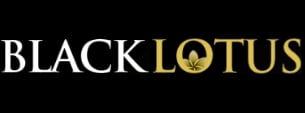#2

Get 600% Welcome Match + 60 Free Spins
Deposit and play with cryptocurrencies to collect rewards
Experience an amazing selection of weekly bonuses and promotions
Enjoy amazing perks in their exclusive VIP program
While gambling is alive and well in Oklahoma, most of it is currently operated by Native American tribes, as commercial casinos are not a part of the market. In fact, it was only fairly recently that any gaming came here, as the government held out far longer than most, even in regulating the most popular forms of betting, such as lotteries and horse racing.
The state has also had one of the most interesting relationships with online gambling in the United States. In fact, both the governor’s office and some of the Indian tribes were happy to offer the games at one point – only, bizarrely, they wouldn’t have been available in the Sooner State at all.

While Oklahoma was clearly part of the “Old West” gambling tradition back in the 19th century, that industry died (at least in legal terms) once the state was officially admitted to the USA in 1890. After that, it would take nearly a full century before anyone successfully managed to bring gaming back here in even a limited form.
The first breakthrough would come in 1982, when gamblers Oklohomans finally gained the right to bet on horse races. Parimutuel betting proved to be quite popular, and three major tracks remain open to this day, albeit in a very different form than when they were first opened.
It wouldn’t be until 1992 that charity gambling (usually meaning bingo and raffles) would be legalized, again putting Oklahoma behind the curve when compared to most of the country. That, however, proved to be the beginning of a major expansion of the industry here, whether the government intended for this to be the case or not.
As soon as bingo began being played at churches and veteran’s halls, Indian tribes also started to host bingo on their lands, as was their right under the Indian Gaming Regulatory Act of 1988. Of course, the tribes wanted to do more, but they couldn’t forcefully do so, as slots, table games, and other traditional casino options weren’t available anywhere else in the state. They still could have negotiated compacts with the government; however, with the exception of compacts regulating horse racing, several governors refused to allow for any expansion of gaming.
The tribes continued to try to push the limits of their casinos, while also lobbying for the opportunity to offer full resorts to the public. Finally, in 2004, the state legislature passed a bill that would both allow electronic machine gaming at the three biggest racetracks in the state, while also providing a model for compacts that tribes could agree too in order to offer full gambling on their lands. The measure did have to survive a vote from the general public, but voters approved it by a nearly 60-40 margin.
Within years, gambling exploded here. Thirty different tribes agreed to Class III compacts, and an incredible 94 casinos were operating, the highest number in the country. While that number appears to have come down a bit over the past few years, there are still more than 50 different Native American establishments operating here today, the highest number anywhere in the US, followed by California and Florida. This is hardly surprising, as Oklahoma is home to nearly a third of the United States’ Native American population, but it is still an impressive number. Three “racinos” are also in operation, including Will Rogers Downs and Remington Park.
You may have noticed that we’ve yet to mention a lottery. Though there is one here, it was a rather late arrival to the party: it was only created in 2004, after voters overwhelmingly approved its creation following the passage of a bill the previous year. The lottery began operating soon thereafter, and today, both local lotteries and multistate draws are offered to players here.
#1 Casino

Banking Methods
Operating Systems
Rating
More than $250,000 in monthly player cashouts
Award winner: recipient of numerous "best casino" awards
All games are regularly independently tested for fairness
#2

Get 600% Welcome Match + 60 Free Spins
Deposit and play with cryptocurrencies to collect rewards
Experience an amazing selection of weekly bonuses and promotions
Enjoy amazing perks in their exclusive VIP program
#3

Get $5000 Welcome Bonus Package
Play regularly and get monthly free chips
Learn how to play with the casino guides
Enjoy a wide selection of new games
#4

Get up to $2,500 + 50 Free Spins
Enjoy a top collection of RTG slots
Available for instant-play or download
Climb up the VIP tiers for more rewards
#5

Get 200% up to $5000
Claim casino and sportsbook bonuses
Unlock six levels of VIP rewards
Refer friends to earn raffle tickets
Casino of the month

Get 200% up to $7,000 + 30 Spins on Big Game
Download special software to play on desktop with Mac or PC
200% first deposit match worth up to $500 plus seasonal promotions
Over a dozen video poker games plus keno and scratch games
#7

Get up to 111% + $111 Free Chip
Play at a gaming world set in 2121
Complete missions to earn rewards
Claim special character promotions
#8

Get 600% Bonus + 60 Free Spins
Make payments with credit cards & e-wallets
Opt for instant play or download mode
Play on mobile, tablet, & desktop
Exclusive Welcome Offer

Get 450% up to $4,500
Get daily reloads and match bonuses
Enjoy boosted crypto promotions
Play the best slots and games from RTG
#10

Get up to $2500 Welcome Bonus
Fully licensed and legal casino
More than $250,000 in monthly player cashouts
All cashouts processed in 48-72 hours
Given what we’ve talked about above – or perhaps even just your general impressions – you would be forgiven for thinking that Oklahoma would be one of the last places in the country that would allow some form of online gambling to be regulated here. But, in fact, the government once entered into a compact with the local tribes that expressly allowed online poker.
That occurred in 2013, when the Cheyenne and Arapaho Tribes reached an agreement with officials that would allow them to run a website known as PokerTribes.com. It wasn’t an exciting breakthrough for poker fans here: the move would only have allowed the tribes to offer online gambling to international jurisdictions where real money casinos were legal.
However, the site never quite got off the ground. The federal government intervened to put a stop to the compact in early 2014, ostensibly due to issues with the fairness of the agreement. The tribes fought that move, but eventually decided to simply stop any plans to offer games through the site, though they have the framework in place in order to later offer them down the line should they gain approval.
That, of course, doesn’t mean that the state would ever allow Internet gaming to be offered within its own borders, and so far, there has been little to no movement in that direction. However, that hasn’t stopped many players from using overseas sites. Since Oklahoma is a grey market, many reputable companies set in other countries offer their services there, and with no penalties for players who participate, there is still a thriving online industry.
Going forward, one issue is about to be reexamined in the Sooner State: online gambling could once again be offered overseas from the lands of Native American tribes. In late 2015, the Iowa Tribe of Oklahoma won a decision from an arbitrator that said their plan to offer a site similar to the one envisioned by the Cheyenne and Arapaho Tribes does not violate any federal or state laws; a federal judge then certified that ruling, and the tribes now plans to launch the games to foreign markets in 2016.
That decision could lead other tribes to do the same thing, perhaps sparking a mini iGaming boom for Native Americans in Oklahoma While the revenue would likely be relatively limited, at least at first, it could end up inspiring tribes in other parts of America to make similar moves, something that could potentially turn the online gaming industry in the United States on its head.
Of course, that doesn’t mean that Oklahomans should expect such options to come their way anytime soon. As we mentioned earlier, there aren’t any signs that the government here wants to regulate online casinos within its borders, and they may just see tribal groups doing so as a fair business deal: if they can find willing markets for their games over the web, then so be it. But even this unusual arrangement has to give some hope to gamblers in the state, as it probably won’t be too long before